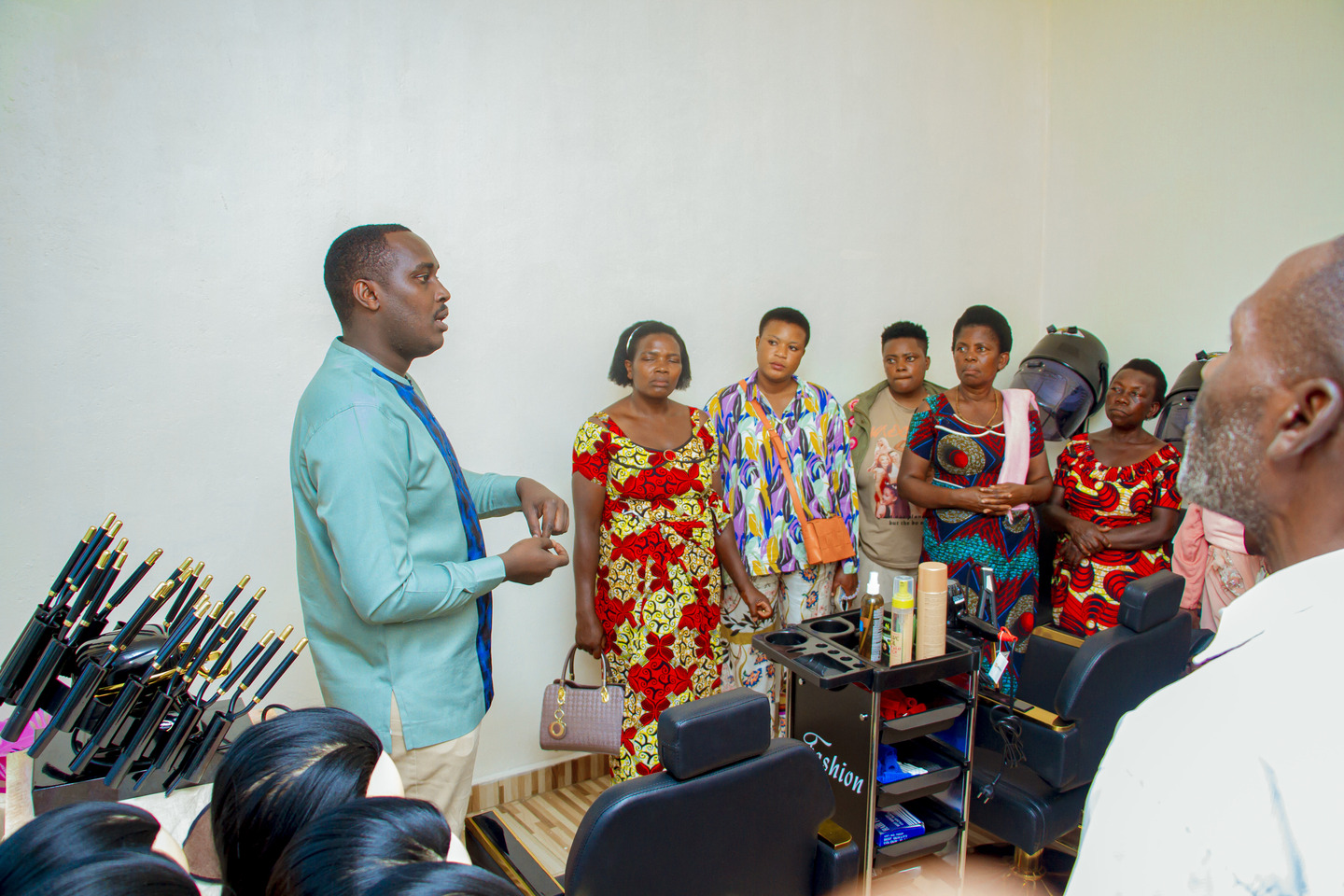 " alt="Supporting Africa for Excellence Mission in empowering individuals with disabilities in Nyamasheke, Rwanda">
" alt="Supporting Africa for Excellence Mission in empowering individuals with disabilities in Nyamasheke, Rwanda">
Supporting Africa for Excellence Mission in empowering individuals with disabilities in Nyamasheke, Rwanda
Grantee: Africa for Excellence Mission
Location: Rwanda, Africa
Grant Cycle: 2025 – 2027
Type of Grant: three-year program support, Human Welfare & Rights
Website: africaforexcellence.org
Human Welfare
& Rights
Africa for Excellence Mission (AFEM) is a Rwandan non-profit organization committed to empowering youth and local communities through personal and professional development initiatives. AFEM’s mission centers on fostering positive behavioral change among African youth to address critical societal challenges, including poverty, juvenile delinquency, and the spread of sexually transmitted infections. The organization’s vision is to cultivate a generation of African youth who are leaders in sustainable development, contributing meaningfully to their communities’ economic, educational, moral, social, and spiritual progress.
Since its establishment in 2009, AFEM has equipped over 1500 young people with practical skills in hospitality and entrepreneurship. The organization saw significant growth in 2016, expanding its reach to include training for staff in prominent hospitality establishments. AFEM delivers targeted training programs in leadership, entrepreneurship, customer service, and other essential areas, designed in collaboration with clients and partners to meet evolving community and industry needs. Through its work, AFEM seeks to drive measurable and lasting impact in Rwanda by nurturing capable, ethical, and proactive individuals ready to contribute to national and continental development goals.
In Nyamasheke, Rwanda, persons with disabilities face persistent and multifaceted barriers to employment, education, healthcare, and broader social inclusion. A critical challenge is the limited availability of essential assistive technologies, such as wheelchairs, Braille devices, and hearing aids, which are crucial for ensuring equitable access to services and opportunities. This lack of assistive support significantly impedes the full participation of individuals with disabilities in everyday life. Compounding this issue is the inadequacy of physical infrastructure. Many public spaces, including buildings and transportation systems, remain inaccessible, further restricting mobility and access to social and economic opportunities. These structural barriers are particularly pronounced in rural regions like Nyamasheke, where infrastructure development has often lagged behind.
Although Rwanda has made commendable progress in promoting inclusive development through laws, policies, and advocacy campaigns, social stigma and entrenched negative perceptions of disability continue to pose substantial obstacles. Addressing these challenges requires a paradigm shift, reframing disability not merely as an individual impairment, but as a social construct shaped by environmental and attitudinal barriers. Promoting disability inclusion, therefore, demands both systemic change and community-level engagement to foster environments that enable all individuals to participate fully and with dignity.
To address these challenges, Sangira Friends of Rwanda in collaboration with its local partner Africa for Excellence Mission and people with disabilities from Nyamasheke already engaged in the IMPANO capacity-building programme (IMPANO meaning “Talents” in Kinyarwanda), has initiated a participatory project development process. The initiative was co-designed by IMPANO members and AFEM management, ensuring that it reflects the genuine needs, capacities, and aspirations of its beneficiaries.
The project, supported by the Nando and Elsa Peretti Foundation (NaEPF) as part of its strategic commitment to empowering disadvantaged individuals through vocational training and education, focuses on the establishment of two interrelated revenue-generating initiatives in Nyamasheke, Rwanda. These initiatives, the Wellness Hub and the Orthopedic Workshop, are designed to economically and socially empower persons with disabilities while significantly improving their quality of life. Both components of the project are structured with a strong emphasis on long-term self-sustainability. Beyond providing essential services to persons with disabilities, they integrate comprehensive vocational training programs to equip participants with marketable skills. This approach enables beneficiaries to achieve greater economic independence and contributes to a broader culture of inclusion.
The Wellness Hub will function as a dedicated center offering beauty and relaxation services, fully managed and operated by individuals with disabilities. Beyond being a source of income, the hub will serve as a community platform to promote well-being and break down stigma. Through specialized training in massage therapy and beauty care, participants will not only develop professional competencies but also engage with the public, actively reshaping perceptions and fostering greater social integration.
Complementing this, the Orthopedic Workshop will provide custom-made orthopedic devices, including shoes, braces, and prosthetics, tailored to meet the needs of individuals with physical disabilities. In addition to the fabrication of assistive devices, the workshop will offer training on their proper use and maintenance. This dual focus enhances users’ mobility, autonomy, and overall health outcomes, contributing to a more inclusive support system for persons with disabilities. Together, these initiatives form a holistic model of empowerment, combining social enterprise, vocational training, and community engagement. By creating inclusive economic opportunities and promoting dignity and self-reliance, the project will generate lasting impact for persons with disabilities in Nyamasheke and serve as a potential model for replication in other regions.
 ©All rights reserved Africa for Excellence Mission
©All rights reserved Africa for Excellence Mission
